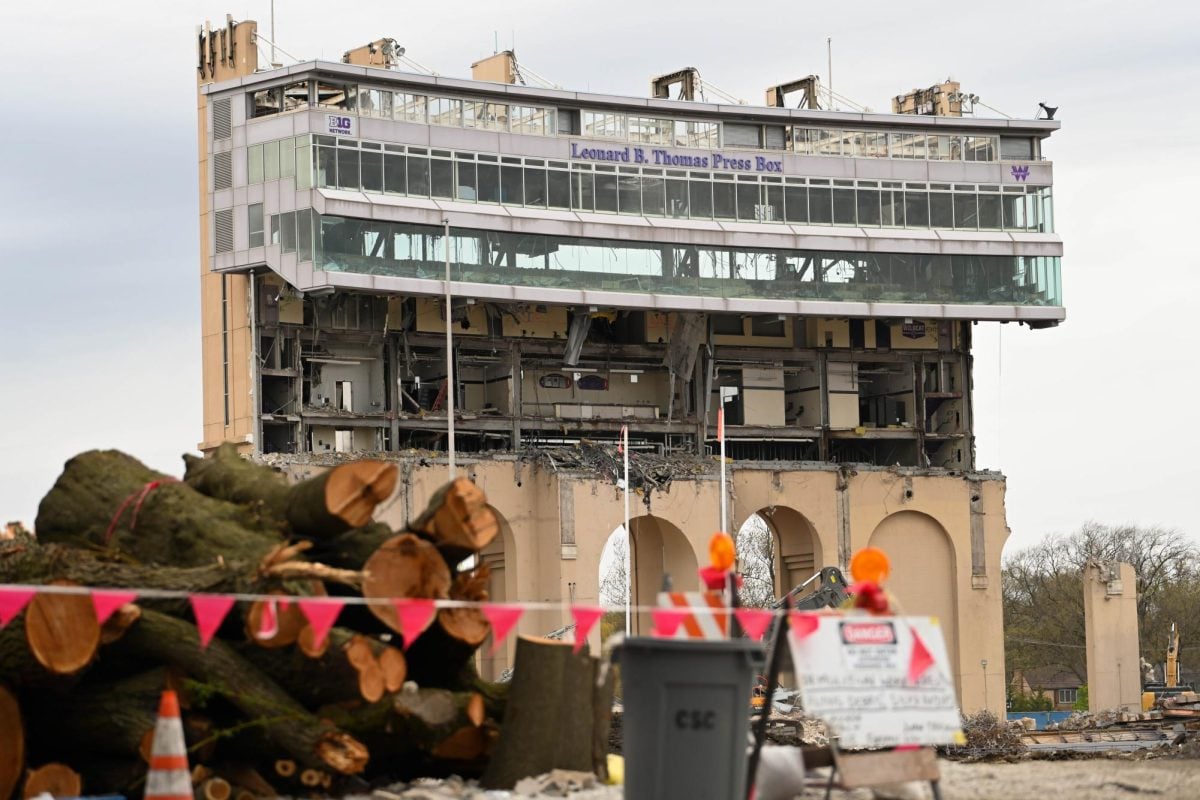Dealing an early blow to residents opposing public-facing concerts at Ryan Field, a county judge dismissed three counts in the Most Livable City Association and 13 stadium neighbors’ complaint against the city on Friday.
In the months since the residents filed their complaint, the city and Northwestern asked the court to dismiss three of the suit’s four counts.
One of those three counts alleges Mayor Daniel Biss’ tie-breaking vote did not meet the council’s majority threshold. Another says NU’s project changes the site’s use so fundamentally that it should have required a zoning map amendment, a more stringent process. The last argues a written protest by Most Livable City should have triggered a supermajority vote under state law.
Cook County Circuit Court Judge Pamela McLean Meyerson rejected those arguments in Friday’s oral decision. She also granted Evanston’s requests to deny the residents damages, a jury trial and attorney’s fees.
Still, the residents’ case asking the court to invalidate the approval of NU’s zoning change will continue. One count, which NU and Evanston did not seek to dismiss, still stands.
“While we disagree with today’s ruling on our procedural due process claims, we will keep advocating for the full constitutional guarantee of due process that protects all residents from arbitrary government decisions,” Most Livable City President David DeCarlo said in a statement to The Daily.
The decision comes as the demolition of NU football’s longtime fortress nears completion. The University’s $800 million project will build an entirely new arena that will also feature commercial concerts, the focus of many neighbors’ ire.
After Biss broke City Council’s tie in November on the zoning change to allow concerts, the Most Livable City Association and 13 stadium neighbors sued the city. In the months since, the University had filed to intervene.
On Wednesday, attorneys for NU and Evanston said in Meyerson’s Chicago courtroom none of the three counts they sought to dismiss amounted to constitutional violation claims. They also argued that, as a home rule city, Evanston’s use of its own voting and zoning rules should not be questioned by the court.
Representing the residents, attorney John Shapiro pushed back, arguing the city disregarded its own “clear and unambiguous” rules on voting and zoning.
In her ruling Friday, Meyerson acknowledged both sides’ arguments but called the plaintiffs’ claims “not sufficient” because of Evanston’s home rule status. The city argued it followed its own rules regardless, and Meyerson agreed, holding City Council’s five-person majority sufficient for approval.
She also denied the residents’ call for a map amendment because the Ryan Field zone’s boundaries did not change. And, with regard to their argument that state law would have required a six-vote majority following Most Livable City’s protest, Meyerson said the home rule city had already created a sufficiently detailed process, thus superseding state law.
“Judge Meyerson’s ruling today confirmed that the City of Evanston took the necessary steps to ensure that the permitted uses in the U2 zoning district were appropriately amended,” City spokesperson Cynthia Vargas said in a statement to The Daily. “The City remains committed to maintaining transparency and fairness in all of its decision-making processes and procedures.”
Even with the three counts’ dismissal, NU and Evanston had not tried to dismiss one of the four counts. That count — the civil complaint’s most elaborate — alleges the city engaged in “secret negotiations” in favor of NU for a “capricious” zoning change that ultimately violated the residents’ due process rights.
A lengthy court battle could follow as discovery of evidence on the one remaining count looms. Meyerson scheduled a status update hearing for the morning of June 26.
Most Livable City’s November complaint offered a preview of the disputes that lie ahead.
“Evanston systematically aided Northwestern throughout the zoning process, seeking a predetermined outcome: the approval of Northwestern’s proposed zoning amendment,” the original complaint alleged. “That outcome ignored substantial evidence of harmful impacts on neighboring homeowners, families, residents, properties, and businesses, and was contrary to the City’s own zoning standards.”
In a statement to The Daily, NU spokesperson Jon Yates said the University will reserve comment until the case is completely litigated.
Email: [email protected]
Related Stories:
— Parties duel as first decision looms in Ryan Field zoning case against Evanston
— Football: Northwestern to play ‘majority’ of 2024, 2025 home games at enhanced Martin Stadium
— Ryan Field zoning lawsuit parties clash after NU intervenes to dismiss case






